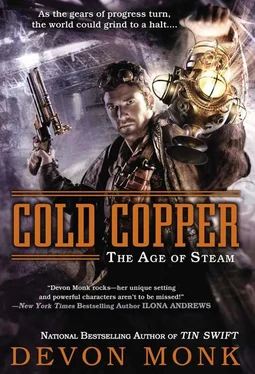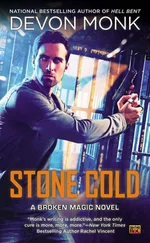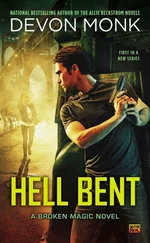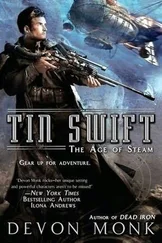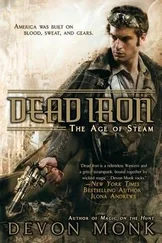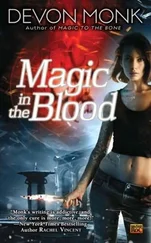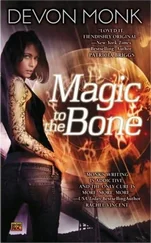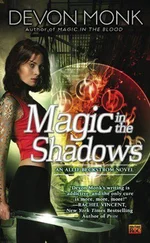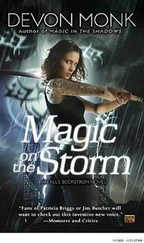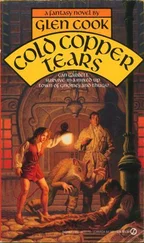“Do you know what this is about?” Cedar asked over the creak and jostle of the carriage.
“It’s about old debts and new wars, Mr. Hunt,” Alun said. “Mayor Vosbrough has never quite sided with the people who have the best interests of this country in mind. We’ve wondered why he settled in Des Moines. Now that the railroad hub is here in the town connecting rivers and lands and coasts, well, seems to make some sense as why he’s here.”
“He’s powerful and wants more power,” Bryn said.
“Power,” Cadoc mused. “Perhaps that is all the town is made for.”
“And what does this have to do with you?” Cedar asked. “He wouldn’t be the first man to use money or other means to bend the law and the progress of civilization to his favor.”
“He’s not a man,” Cadoc said so softly only Cedar’s sharpened hearing allowed him to make out his words. “He’s a devil.”
“Oh, it’s worse than that, brother Cadoc,” Alun said. “He’s a devil with plans. The worst sort of devil to have. Mr. Hunt, promise me this: you will look for the Holder. No matter what happens.”
“I’ve never gone back on my word, Mr. Madder,” Cedar said. “I caught the scent of the Holder. I think it’s nearby.”
“Is that so?” Alun said. The brothers exchanged a look.
“Lucky for us,” Bryn said.
“Lucky for someone,” Cadoc said.
“Luck or otherwise, I expect you to be looking for it,” Alun said. “If, of course, we survive meeting the mayor.”
“That sounds rather final,” Mae said. “Do you think this is dangerous?”
Alun raised one bushy eyebrow and dug in his pocket for his pipe. “Don’t think it, I know it. Life is danger, my dear woman. Today we happen to know just exactly where the danger’s coming from.”
“What did you do to him?” Cedar pressed.
Alun paused and gave Cedar a hard look. Then he patted his pockets and Bryn offered him a welding striker, from which Alun lit the tobacco in the bowl.
“The Madders and Vosbroughs have history, Mr. Hunt. It is a long history. That’s all you need to know.”
Alun puffed away on his pipe and folded his arms over his chest, staring out at the passing city. It was clear he would say no more.
Drama or foolery. Cedar didn’t have time for either.
“A man deserves to know what foe he might be facing,” Cedar said.
But none of the brothers said a word.
Cedar settled back. Fine. He’d gone blind into war before. He didn’t think breakfast would be the worst battlefield he’d ever navigated.
The frozen landscape of the city shifted from trees and two-story wood-frame houses to wide lanes cleared of deep snow, drifts piled up on either side of the roads teetering against tall brick buildings and wrought iron gates.
Down those roads rattled every manner of steamer cart: brass and wood, and one that seemed made of silk handkerchiefs and fine embroidery. Horses added to the muddle, and heavy muler wagons belched out smoke and hot ash that flashed red before dying gray in the wet snow.
Plenty of people were in the street, in tailored coats and high hats, bonnets with lace that matched the hem, boots in bright blues and yellows tied up in black. All those people crowded together wearing browns and gray and sensible black, with scarves or mittens adding a coy flip of color, like birds flocking beneath the shadow and bleak light of the day. Mixing and milling, they ducked under bright red awnings that were stretched out from towering buildings.
All the shops had glass windows, goods stacked for display, and door latches polished bright.
But the thing that caught Cedar’s eye was copper wires that spooled from roof edge to roof edge. Crossed and tangled, caught up with glass globes, looping down poles, and spun along windows, the copper wires looked like a great metal spider had gone mad and stitched the entire city together with thread.
Telegraphs in every house. The sheriff hadn’t been boasting.
Des Moines might have once been a sleepy town, but no more. Rail, river, and sky had packed its streets with people eager to work, businessmen in smart suits and jackets, bowler hats and canes, and women in silk tuck-edged umbrella skirts and parasols.
Mixed among the upper class were cowboys, farmers, and miners, all in sturdy workaday clothes, overalls, and heavy boots, walking with the sort of determination found in men who sweat for their pay.
Newspaper boys called out the morning headlines at street corners, and the airships rattled fans overhead as they hummed toward the skyscraping tether towers just outside the city, dragging bulbous shadows over the streets and buildings.
This was a working town, a shipping town, a building town.
This was a city.
The old yearning of days long past, when he had sought a scholarly life, settled around him again. It wouldn’t be so hard to imagine himself out in those streets, hurrying for a meeting, for a class, for the day’s business. It wouldn’t be so hard to imagine the nice suit, the companionship of learned men, the steady dignity of education, reading, and other comforts.
Mae shifted a bit, her hand upon the tatting shuttle she wore beneath her coat. She was worried, uncomfortable. He didn’t know if she’d ever been to a city this large. Most of her days had been spent in the coven and then on the farm she and her husband owned. He touched her hand where it rested on the seat between them, meaning to lend her comfort.
She turned her gaze away from the window to him.
All the thoughts of his previous life faded away.
She was his life now, his future. Maybe they’d settle in a city once he found all the pieces of the Holder for the Madders. Maybe they’d settle on some faraway hill and take up farming.
Whatever they chose, he knew wherever this woman was, his heart would find home.
She searched his face, and he wondered what she saw there. His long sorrows? His fleeting joys? He wondered if his growing love for her was plain in his eyes, wondered if it was clear without words how he felt about her.
She frowned. “Are you all right? Did you sleep at all?”
“No. Not a wink. But I’m fine enough.”
She gave him a fleeting smile, then looked back out the window. She didn’t remove her hand from under his, and they rode the rest of the way through the loud, busy city to a grand manor house.
The carriage rolled up right in front of the marble stairs that made a half circle in front of a four-story brick building with spires and creased copperplated roofs. The building was a fine specimen of architecture, sporting crisp white balconies and scrolling trim that framed every window.
“Remember your promise, Mr. Hunt,” Alun said. “The Holder is all that matters. The longer it remains out of our reach, the more damage it does. Wars, disease, and madness. And if it falls in the wrong hands, our civilized world will be gone in a snap.”
Alun shoved the door, nearly nicking the footman who jumped down out of the way.
Bryn lifted his woolen hat, smoothed down his tousled hair, and adjusted the monocle over his bad eye. “We’ll know if you aren’t looking for it,” Bryn said. “We’ll know if you falter. Do not disappoint us in this, Mr. Hunt.” He ambled out the door behind his brother.
Cadoc reached out for the doorframe but paused.
“This is long coming, this encounter between the Vosbroughs and Madders,” he said. “Remember your promise to us and all those living. Finding the Holder is all that will save us in these dark days. This is a grim time, and it is a grim game we play with the world in the balance. The winning or losing hinges on you, Mr. Hunt—on you finding the Holder.”
And then he was out the door too.
“They have always been so theatrical,” Miss Dupuis said, tugging her gloves tighter to her hands. “Once they gave farewell speeches fit for a king when all they did was walk from one room to another to get a beer.”
Читать дальше
